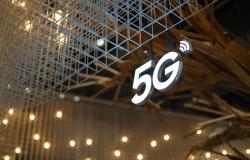
This paper offers an analysis of US strategy in the unfolding United States–China ‘tech war’ and its consequences. We argue that a tech war is now underway, and that Washington is the driving force behind it. Here, we focus on the most impactful policy so far: the placement of Huawei and over 150 of its affiliates on the sanctioned Entity List. As a result, a decoupling between high-end US tech and Huawei Technologies is well underway, if not already complete. However, the consequences of the sanctions have not been what Washington intended or expected. The company appears to have maintained its position as one of the world's leading innovators in 5G technology and remains a leading supplier of 5G base stations. The United States risks undermining co-operation with China in other critical policy areas because the tech war is viewed as aggressive in Beijing. It has also exposed the limits of US influence over allies and third countries, many of whom are opting for Huawei's cheaper 5G infrastructure. Nevertheless, the expansion of this approach by the Biden administration suggests that, in future, Washington may prioritise security interests over commercial ones as it seeks to preserve as much US primacy as possible.
Policy Implications
- The sanctions on Huawei should be reviewed because they are not achieving US goals. Huawei has responded by intensifying its R&D and has made significant progress.
- The tech war risks undermining co-operation with China in other critical areas because it is viewed as aggressive by Beijing. Efforts to co-operate with China in other important policy areas should be re-doubled, including the establishment of appropriate Track II diplomatic channels.
- At the strategic level, the objective of maintaining US primacy should be reviewed to determine whether it is congruent with American capabilities relative to rising powers, and China in particular.
- The United States and its allies must continue research and investment in robust 5G cybersecurity to mitigate risks in all 5G infrastructure, and share this technology with states concerned about network security.
- The United States should avoid public pressure on allies and friends to avoid Huawei equipment because it does not have the leverage to dictate decisions on 5G infrastructure investment, and risks damaging relationships by pressuring third countries to take sides.
Photo by Z z